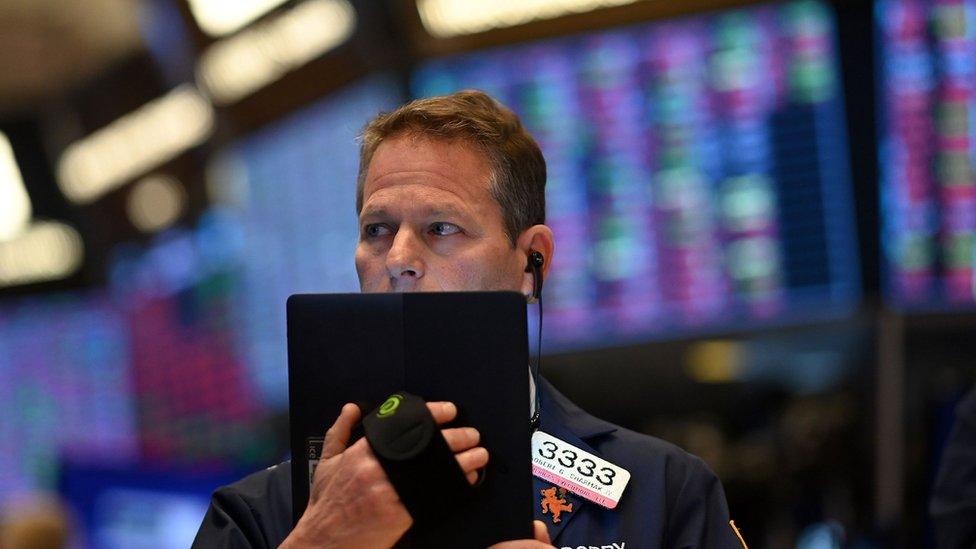Dow falls more than 4% amid coronavirus stock rout
- Published
- comments

Financial markets suffered a sixth day of losses on Thursday, as traders dumped shares on fears that the spread of coronavirus will hobble the global economy.
In the US, the Dow Jones plunged nearly 1,200 points to lose 4.4%. It was the sharpest points-drop in history.
The S&P 500 ended 4.4% lower, while the Nasdaq dropped 4.6%.
Earlier, London's FTSE 100 finished 3.5% lower, while Japan's Nikkei 225 led Asian losses, falling more than 2%.
The string of declines has pushed indexes in Europe and the US down more than 10% from their recent highs - sending them into so-called "correction" territory.
The tumult comes as the coronavirus, which started in China, spreads rapidly around the world, restricting travel, upending global supply chains and prompting shoppers in some countries to stay home.
"Markets move sharply when fear and uncertainty are prevalent, and there is plenty of both right now," said Greg McBride, chief financial analyst for Bankrate.com.
Indexes in the US and London were poised for their the biggest weekly losses since the 2008 financial crisis, as the Dow retreated to levels last seen in August.
Investors rushed into less risky investments, such as government debt, sending bond yields to record lows.
Globally, the share price declines of the last six days have wiped out more than $3.6tn (£2.8tn) in value.
The declines follow warnings from dozens of companies - from mining firm Rio Tinto to software giant Microsoft - that they will not hit sales targets. On Thursday, Facebook said it would cancel a conference for developers, scheduled for May.
Economists, many of whom had originally expected the virus to be a temporary blow, are also sounding warnings.
At an event on Wednesday, former US Federal Reserve chair Janet Yellen suggested it could tip the US into recession, while Goldman Sachs told clients it did not expect companies to see any profit growth this year.
"Our reduced profit forecasts reflect the severe decline in Chinese economic activity... lower end-demand for US exporters, disruption to the supply chain for many US firms, a slowdown in US economic activity, and elevated business uncertainty," the firm wrote.
The coronavirus has infected nearly 79,000 people in China and killed more than 2,700. More than 3,200 cases and 51 deaths have been reported in another 44 countries.
Investors around the world are now looking to see if central banks respond with efforts to prop up the economy.
Chinas's central bank has already taken stimulative measures.
Germany's Economy Minister Peter Altmaier said that while the impact of the virus so far had been limited, the country was considering how to respond should it worsen.
- Published27 February 2020

- Published27 February 2020

- Published27 February 2020

- Published23 March 2020

- Published27 February 2020
